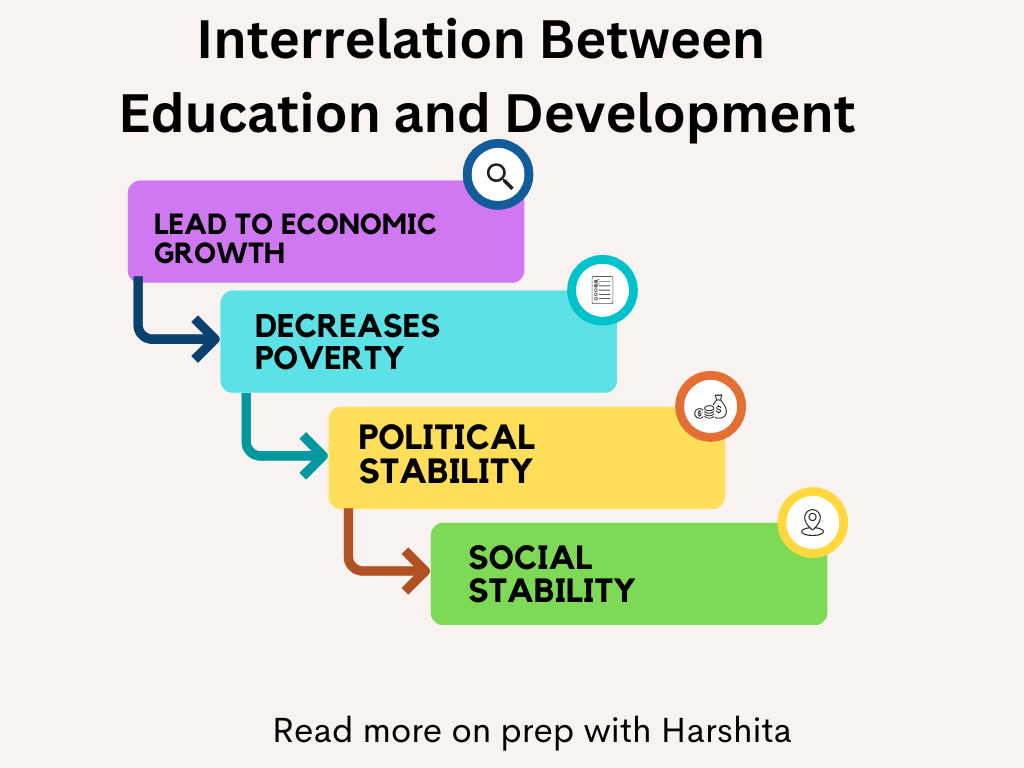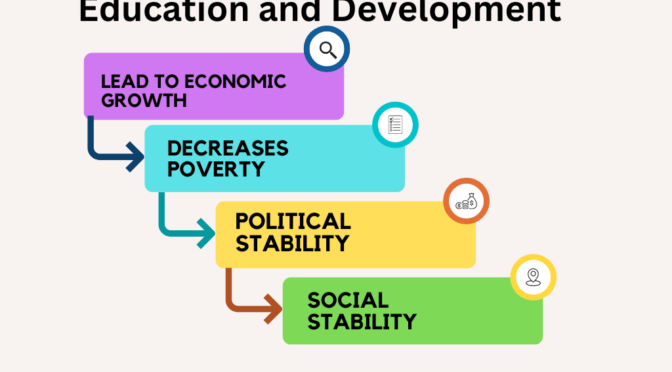The interrelationship between education and development is well-established and widely recognized.
Education is a critical driver of economic, social, and human development. It is often considered a key component of human capital, which encompasses the knowledge, skills, and abilities of individuals that contribute to their productivity and well-being.
Education can have a direct impact on economic development by increasing the productivity and skills of the workforce. It can also improve health outcomes, reduce poverty, and promote social and political stability, all of which are critical factors for sustained development.
Moreover, education can also be an important catalyst for innovation and technological progress, which can drive economic growth and competitiveness. Education can enable individuals to develop new ideas, technologies, and products that can spur economic development.
Here are seven key points that highlight the interrelation between education and development:
- Education is a key driver of economic growth and development: Education is a crucial factor in economic development, as it helps individuals develop the skills and knowledge required to be productive and innovative members of the workforce. By improving the skills and productivity of workers, education can lead to increased economic growth and development.
- Education promotes social and political stability: It can promote social and political stability. It fosters greater civic engagement and promotes democratic values. Educated citizens are more likely to participate in the political process and hold their governments accountable, which can help to promote greater stability and democratic governance.
- Education reduces poverty: Education is often cited as a key tool for reducing poverty, as it can help individuals develop the skills and knowledge necessary to earn higher wages and secure better jobs. Education can promote greater social mobility, allowing individuals to move up the economic ladder and improve their standard of living.
- Education promotes health and well-being: It is also closely linked to health outcomes, as educated individuals are more likely to make healthy choices. They have access to healthcare services. In addition, education can promote greater awareness of health risks and the importance of preventative measures.
- Education fosters innovation and technological progress: Education can play a critical role in promoting innovation and technological progress by providing individuals with the skills and knowledge necessary to develop new ideas and technologies. By fostering innovation, education can help to drive economic growth and development.
- Development can impact education: Development can also impact education by creating an environment that fosters educational opportunities. For example, improved infrastructure, healthcare, and access to basic needs can help to promote greater access to education.
- Education is a long-term investment in development: Finally, education is a long-term investment in development. It can have far-reaching benefits for individuals, communities, and societies. By investing in education, countries can promote sustainable development and create a more prosperous and equitable future for all.
Also Read: Content and pedagogy Knowledge


